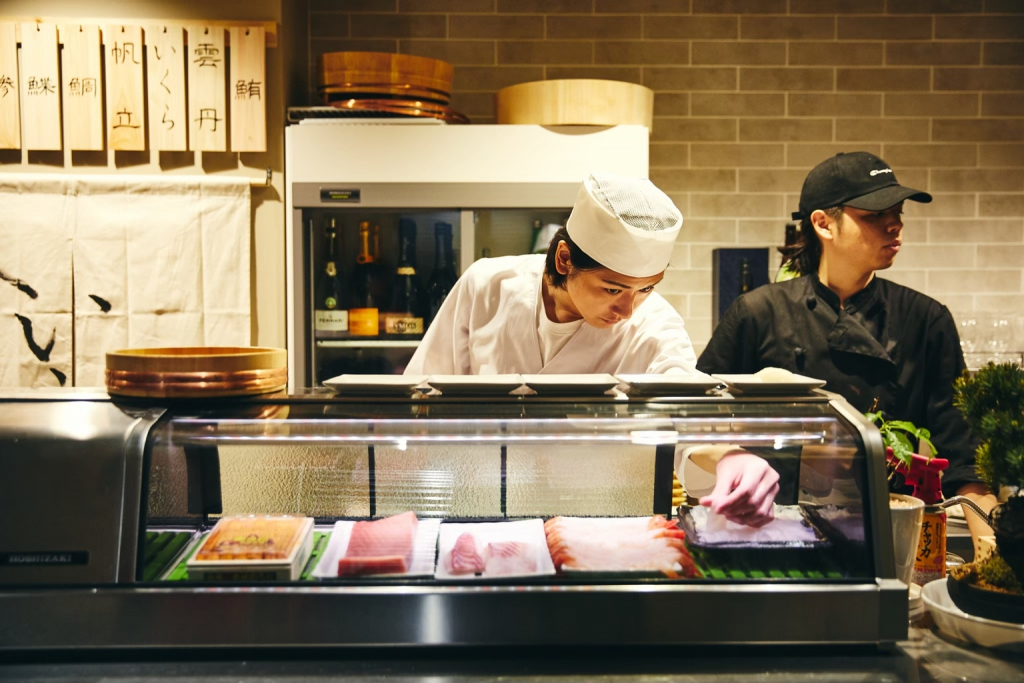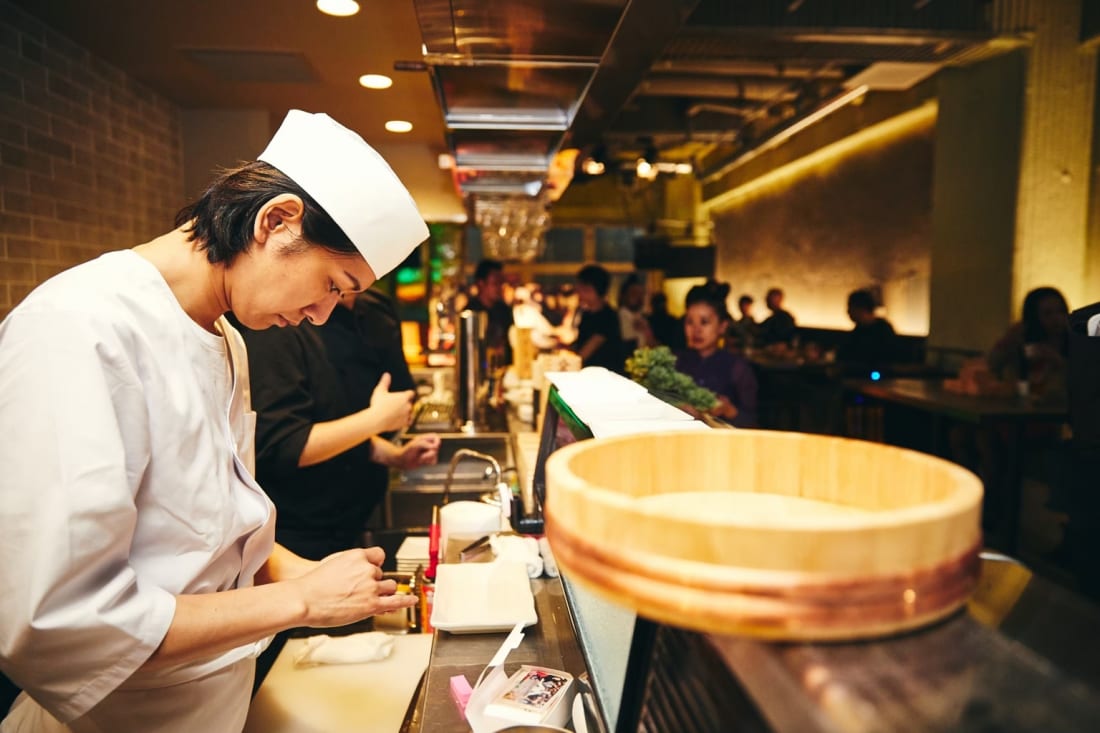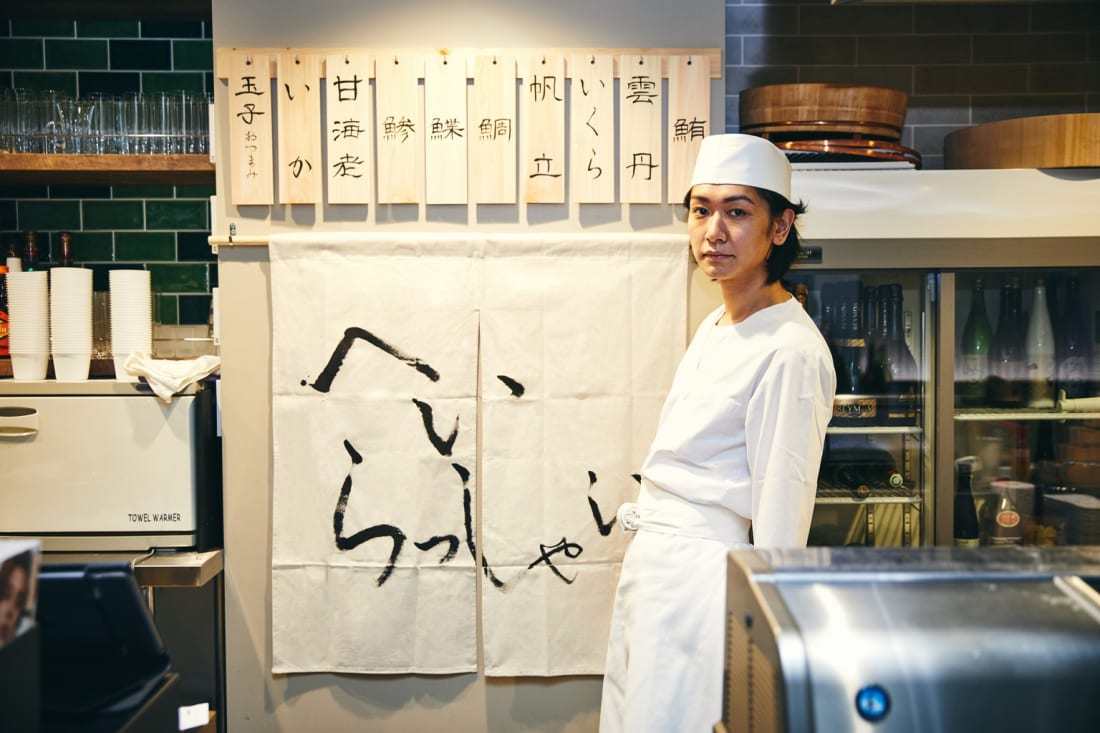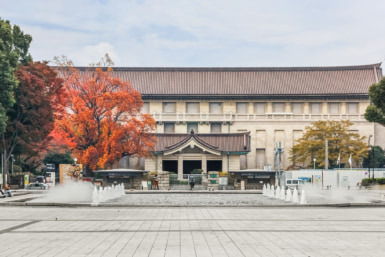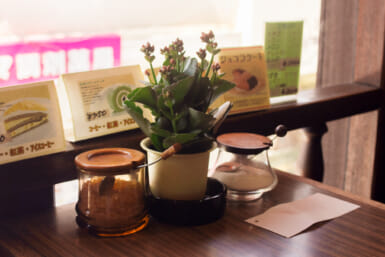When I meet sushi chef Shun at his restaurant Hey Rasshai, he is wearing the usual white chef’s jacket. His flowing mane is tucked under the white chef’s hat. The only clue that he doubles as a host is his youthful complexion and welcoming smile.
Since he turned 18, Shun has worked as a host in the Shinjuku neighborhood of Kabukicho. Once famous for its ties to the yakuza, today Kabukicho is mainly known for its host and hostess clubs where customers can drink and chat with good-looking men and women.
But being a host or hostess is about more than just being attractive; you also have to know how to hold a conversation and how to put people at ease. Confidence is key in this kind of job, which Shun found particularly useful when he started working as a sushi chef.
“When it comes to making sushi, the two most important things are your technique and your attitude,” he says. “Sushi is something that you prepare in front of customers, so you have to show them that you know what you’re doing, that you are confident in both the fish and yourself. In short, you have to be cool.”
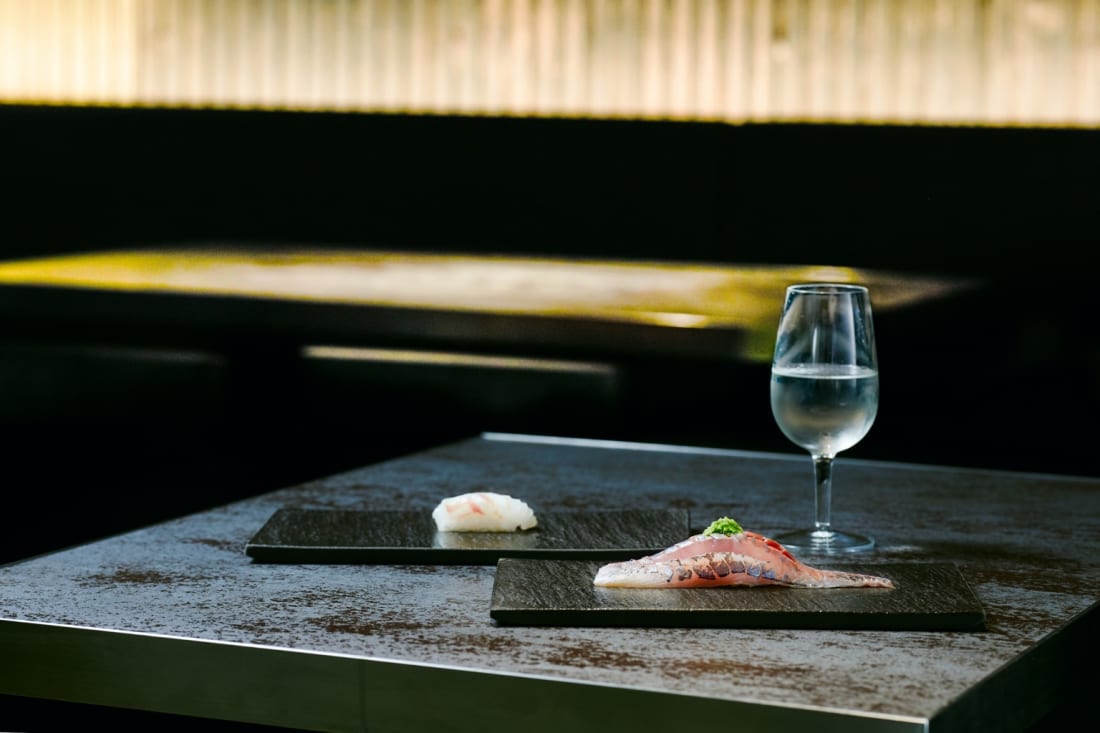
Cool as Kappamaki
Sitting down at Hey Rasshai (a pun on the Japanese word irasshai, meaning “welcome”), my first thought was that it looked exactly how one would picture a “Kabukicho sushi place operated by a host.” The restaurant is relatively small but stylish with high tables, low mood lightning and space at the end for a live band.
Shun has worked in Kabukicho for 14 years, with time becoming the top host at the Smappa! Hans Axel Von Fersen club operated by the Smappa Group. In the last few years, the group started expanding beyond host clubs, investing in such establishments as nail salons and even restaurants. Hey Rasshai was one of their creations, with Shun being the obvious candidate for the position of head chef as he trained under his uncle, who has owned a sushi restaurant in downtown Tokyo for more than 40 years.
“I worked there for about six months, learning the craft. But you never really stop learning about sushi, do you? I’m still learning to this day,” says Shun. “When I started, I had to work really hard to master all the cutting techniques with the kiritsuke,” the multipurpose traditional Japanese knife used for slicing fish, etc.
Make the Cut
I was curious why Shun would give up being a host with its nightlife and expensive drinks to work with fish, and the simple answer is that he didn’t. He’s still working at Smappa, splitting his time between the club and the sushi restaurant.
“I’ll get the fish and start working with them and the rice around 4pm or 5pm, then I will work as a sushi chef from 7pm to 9pm,” he says. “After I finish up here, I go get my hair done and I go to the club. I greet the guests, we drink and talk together, etc. Then at midnight I’m back in the restaurant until 2am or 3am.”
The Host with The Most
Being a host and making sushi both require you to have a keen sense for beauty and style. You can have the freshest fish and the most high-quality rice imaginable, but if you don’t put them together in an elegant, appetizing manner, your sushi will not be received well.
“This is not to say that all hosts would make good sushi chefs,” Shun explains. “But when it comes to presentation and engaging customers sitting by the counter, charming them with polite conversation, and so on, I think hosts really excel at that. Maybe that’s why we get so many female customers. I’d say that some of them do come in here for food that has been personally handled by a good-looking person.”
Or perhaps they come for the little touches, like removing the seaweed wrap from gunkan-style sushi to help customers avoid the uncomely sight of having seaweed stuck between their teeth. That’s the kind of customer service you won’t receive at other sushi restaurants.
Photos courtesy of Smappa!Group
Updated On April 26, 2021

